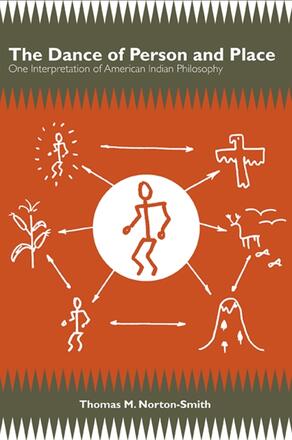
The Dance of Person and Place
One Interpretation of American Indian Philosophy
Alternative formats available from:
Uses the concept of "worldmaking" to provide an introduction to American Indian philosophy.
Description
Ever since first contact with Europeans, American Indian stories about how the world is have been regarded as interesting objects of study, but also as childish and savage, philosophically curious and ethically monstrous. Using the writings of early ethnographers and cultural anthropologists, early narratives told or written by Indians, and scholarly work by contemporary Native writers and philosophers, Shawnee philosopher Thomas Norton-Smith develops a rational reconstruction of American Indian philosophy as a dance of person and place. He views Native philosophy through the lens of a culturally sophisticated constructivism grounded in the work of contemporary American analytic philosopher Nelson Goodman, in which stories (or "world versions") satisfying certain criteria construct actual worlds—words make worlds. Ultimately, Norton-Smith argues that the Native stories construct real worlds as robustly as their Western counterparts, and, in so doing, he helps to bridge the chasm between Western and American Indian philosophical traditions.
Thomas M. Norton-Smith is Associate Professor of Philosophy at Kent State University Stark.
Reviews
"…a deft and self-aware exemplification of the task of cross-cultural comparison … The writing is accessible and shows a deft and helpful interplay between abstract language and concrete illustrative material." — The Pluralist
"Norton-Smith does a good job illustrating how worlds are created through language and how language itself contains philosophy." — H-Net Reviews (H-Environment)
"…Norton-Smith offers an insightful discussion of Native American epistemological concepts … This book is an excellent exercise for all philosophy students as an expansion of worldviews and an examination of Western epistemological foundations and biases. It also offers an insightful discussion of indigenous philosophy for both philosophy and indigenous scholars … Highly recommended." ― CHOICE
"The author opens a unique and exciting avenue for philosophical discourse by demonstrating a method of inquiry that provides a new way of interpreting Native thinking, a method that not only promotes Native philosophical systems but allows for greater communication between Western and Native philosophers." — Lorraine Mayer, author of Cries from a Métis Heart
"Challenging and provocative, this book is a great step forward in the conversation of academic Indigenous philosophy." — Brian Yazzie Burkhart, Pitzer College